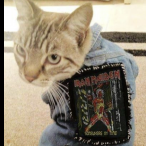-
Trending Products
-
Trending Topics
-

- 383 replies
- 16,386 views
-

- 9,318 replies
- 746,335 views
-

What you should know about WLS they don't tell you
By BlondePatriotInCDA, in General Weight Loss Surgery Discussions
- 34 replies
- 1,626 views
-

- 20 replies
- 351 views
-

- 33 replies
- 1,582 views
-

- 137 replies
- 7,677 views
-

- 35 replies
- 3,528 views
-

- 41 replies
- 1,868 views
-

- 39 replies
- 3,683 views
-

- 39 replies
- 2,281 views
-
-
Recent Status Updates
-
Happy Wednesday!· 1 reply
I hope everyone is having a lovely week so far!
It's been a bit of a struggle this last week...I'm hungry ALL the time.
-
Have a great Wednesday too! Sorry you're hungry all the time, I'm pretty much the same..and I'm sick of eating the same food all the time.
-
-
Well, tomorrow I go in for an impromptu hiatal hernia repair after ending up in the ER over the weekend because I couldn't get food down and water was moving at a trickle... I've been having these symptoms on and off for a few weeks but Sunday was the worst by far and came with chest pain and trouble breathing. The ER PA thinks it is just esophagitis and that the surgeon and radiologist are wrong. But the bariatric surgeon swears it is a hernia, possibly a sliding one based on my symptoms. So he fit me into his schedule this week to repair it! I hope he's right and this sorts it out. He's going to do a scope afterwards to be sure there is nothing wrong with the esophagus. Here's hoping it all goes well!!· 2 replies
-
-
Having gall bladder surgery in a few days and I so hope the recovery is easier than the one from the modified DS! I could use a bit of luck/pep talk for a change. I'm starting to be able to walk around without experiencing dizziness, but it would be great if the random pain in my chest and abdomen would go away!!· 0 replies
- This update has no replies.
-






















